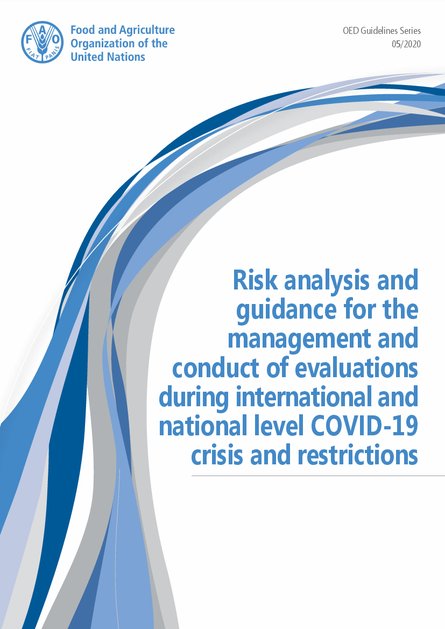
The COVID-19 crisis is affecting health, limiting work capacity and requiring all individuals and organizations to modify their normal workflows and approaches. In response to this exceptional international situation, the FAO Office of Evaluation (OED) has developed a contingency plan to ensure appropriate decisions are made regarding if, when and how to conduct evaluations. The purpose of this note is to provide guidance and criteria to make decisions, based on an analysis of risks, the criticality and importance of individual evaluations, and possible options for alternative ways to conduct them. The Office of Evaluation strives to ensure a continuation of good quality evaluative work while ensuring duty of care principles are applied and respecting and sustaining international efforts to limit the spread of COVID-19 and respond to the pandemic.
The note is structured around the following sections:
1. Analysis of risks: An analysis of risks to the people involved in evaluation processes; the quality and timeliness of the work; and the Organization.
2. Evaluation options for on-going and planned evaluations: A series of options for evaluations, based on considerations of their criticality (intended as relative importance of the evaluation) with respect to the exposure and potential consequence of different types of risks.
3. Risks and criticality matrix for identifying the best option for evaluation conduct: A matrix to support decision-making on conduct on the basis of risk exposure and criticality of the evaluation. In addition, an annotated resource bibliography for remote methods has been prepared as a separate OED document.